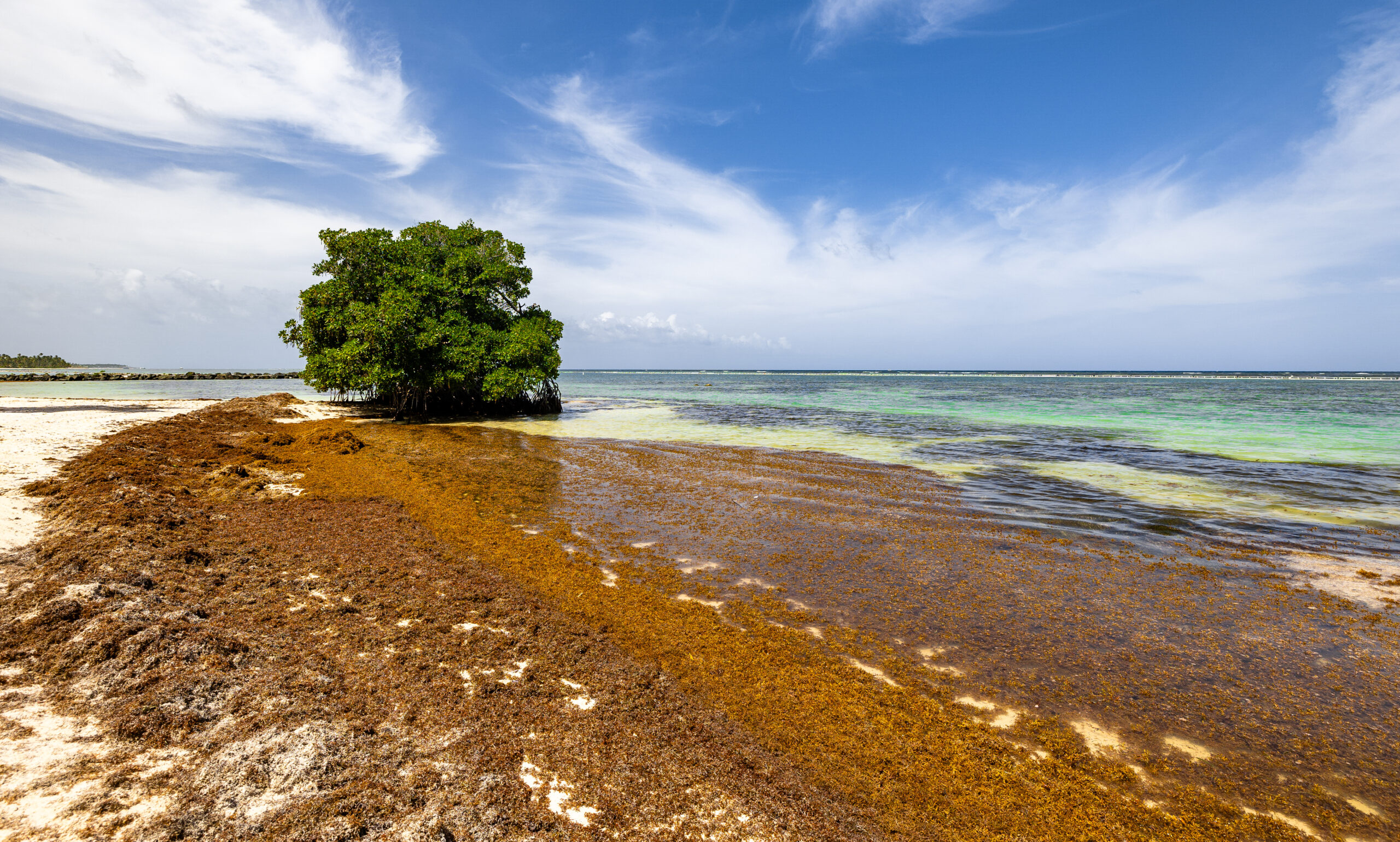
Beached Sargassum seaweed on a beach in Punta Cana, Dominican Republic. Image by D. Bhattacharya.
A multi-institution Sargassum Biorefinery (SaBRe) team, which include researchers from the School of Environmental and Biological Sciences (SEBS), is working to develop a Sargassum seaweed biorefinery process that ultimately turns a nuisance seaweed into animal feed and other valuable bioproducts.
The funded project titled, “Sargassum seaweed as a future renewable feedstock for sustainable biomanufacturing,” is led by Princeton University, in partnership with Rutgers University, University of California, Los Angeles, University of Puerto Rico, Marine Biological Laboratory, and Woods Hole Oceanographic Institute. It is one of five projects to be supported through the Virtual Institute on Feedstocks of the Future and funded at up to $47.3 million over five years by Schmidt Sciences and the Foundation for Food & Agriculture Research.
Debashish Bhattacharya, Distinguished professor in the Department of Biochemistry and Microbiology, and his team will investigate the microorganisms (microbiome) that grow on the salty seaweed, including during its decay.
According to Bhattacharya, after this critical bioprospecting work is done to discover and characterize novel enzymes, collaborators at Rutgers and Princeton University will express the most promising genes in salt-tolerant microorganisms (yeasts, bacteria) and study their functions to optimize the breakdown of polysaccharides in the seaweed feedstock.
The SaBRe team integrates research ranging from basic Sargassum biology to synthetic biology, enzyme and metabolic engineering, catalyst development, and process optimization, all supported with techno-economic analyses and life cycle assessments.
Achieving their goals will turn Sargassum – a genus of large brown seaweed abundant in the ocean – from a nuisance, causing environmental and economic devastation in coastal communities into a renewable feedstock of the future for biomanufacturing.

